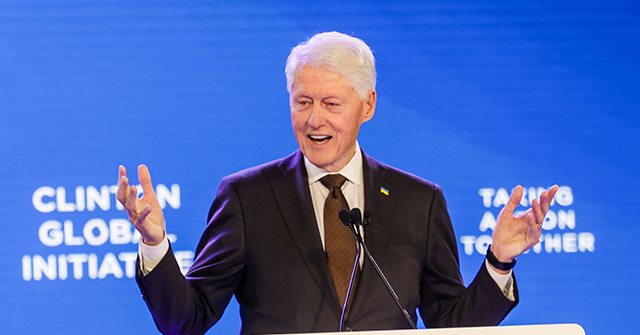In the recently published memoir, “Citizen: My Life After the White House,” former President Bill Clinton dedicates considerable space—around 1,500 words across multiple chapters—to accusing Peter Schweizer, author of “Clinton Cash,” of manipulating the narrative around Hillary Clinton’s 2016 presidential candidacy. Clinton frames this narrative as a misguided attack that ultimately contributed to his wife’s electoral loss, an event he believes continues to haunt the Democratic Party. This accusation positions Schweizer’s work not as investigative journalism but as politically motivated propaganda aimed at bolstering right-wing populist sentiments, a claim that Schweizer firmly contests, asserting the legitimacy of his investigative motives predating the election.
Schweizer challenges Clinton’s assertion that “Clinton Cash” was created with the intent of harming Hillary Clinton’s electoral chances, noting that his investigation began as early as 2013, during Hillary’s term as Secretary of State. The groundwork of Schweizer’s findings was established through the Clintons’ own financial disclosures. He highlights the influx of foreign donations the Clintons received, particularly from countries like Russia, Kazakhstan, and Ukraine, linking these financial transactions to Hillary’s influential political position. According to Schweizer, the correlation between foreign money and political power is evident, particularly when scrutinizing the aftermath of Hillary’s presidential loss, which saw a dramatic decrease in funding to their charitable foundation.
Central to the accusations leveled at Clinton by Schweizer is a scandal involving the approval of the sale of American uranium assets to Russia, one that necessitated scrutiny because it seemingly connected the Clintons, their donors, and foreign interests in a high-stakes diplomatic context. Clinton attempts to minimize this controversy by arguing that Hillary did not personally approve the transaction, a distinction that Schweizer argues is both irrelevant and deceptive. The suggestion that approval processes absolve the Clintons of wrongdoing fails to acknowledge the broader implications of their financial entanglements and the potential risks to national security, particularly when their benefactors stood to financially gain from such deals.
Another significant point of contention rests on Clinton’s claim that “Clinton Cash” somehow orchestrated collusion among major media outlets, alleging that they acted in concert with Schweizer’s narratives to undermine Hillary’s campaign. Schweizer categorically denies this assertion, stating that the reports from outlets like The New York Times and The Washington Post were independently investigating the financial dealings of the Clintons due to the inherent conflicts of interest that arose from their accepted donations. He particularly criticizes the involvement of George Stephanopoulos, former communications director for Bill Clinton, who, while notable for attacking Schweizer’s claims, did not disclose his financial ties to the Clinton Foundation, casting doubt on the impartiality of his critiques.
The obsession Clinton has with “Clinton Cash” is not a mere footnote in his ongoing narrative. A 2023 analysis by The Columbia Journalism Review highlighted that the Clinton campaign viewed Schweizer’s expose as a critical threat to Hillary’s campaign. This perception allegedly led to a broader campaign strategy, including efforts that contributed to the now-discredited Trump-Russia collusion narrative. Schweizer suggests this was a calculated diversion by the Clinton campaign to shift focus away from legitimate criticisms of their actions amid the uranium deal controversy, revealing how political maneuvers can morph into significant narratives in American politics.
Ultimately, Schweizer argues that Bill Clinton’s motivation for writing “Citizen” may be rooted in an effort to revitalize the Clinton brand amidst challenges faced by the Democratic Party. However, he insists that the legacy of Clintonism cannot be disentangled from the myriad controversies that have long shadowed both Bill and Hillary Clinton. Despite any attempts to recast their story, the historical records of scandal and financial impropriety remain central to their political narrative, suggesting that the impacts of their past may continue to define their future in American political discourse.

